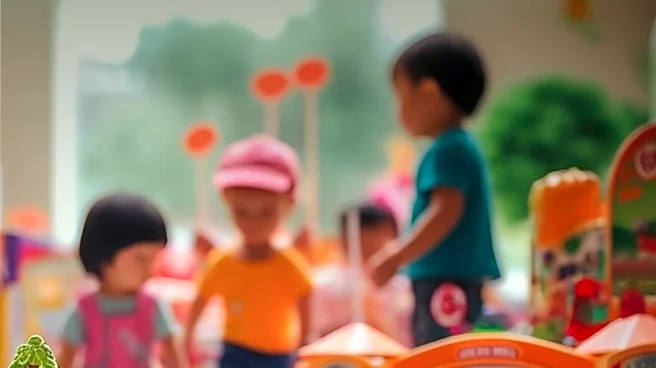What's Happening?
A recent article discusses the imbalance in parenting responsibilities when children fall ill, particularly highlighting the disparity between mothers and fathers in caregiving roles. The piece notes that respiratory illnesses are on the rise, and many families are experiencing this firsthand. The author shares personal experiences of being the primary caregiver when their child is sick, while their husband remains largely uninvolved. This situation is not unique, as studies show that 74% of mothers stay home with sick children compared to 40% of fathers. Experts suggest that societal expectations and gender socialization contribute to this imbalance, with women traditionally expected to be caregivers. The article calls for more equitable sharing of parenting duties, emphasizing the need for communication and collaboration between partners.
Why It's Important?
The issue of unequal parenting responsibilities has broader implications for gender equality and family dynamics. When mothers disproportionately bear the burden of childcare, especially during illness, it can affect their career opportunities and mental health. This imbalance reinforces traditional gender roles and limits the potential for fathers to engage more fully in caregiving. Addressing these disparities is crucial for promoting gender equality and ensuring that both parents can participate equally in their children's lives. By fostering open communication and setting clear expectations, families can work towards a more balanced approach to parenting, benefiting both parents and children.
What's Next?
The article suggests that families should proactively discuss and plan for equitable caregiving responsibilities before children fall ill. This involves setting clear boundaries and expectations, using 'I' statements to express needs, and dividing tasks practically. Encouraging fathers to take on more caregiving roles can help shift societal norms and create a more balanced dynamic. As awareness grows, more families may adopt these practices, leading to a gradual change in traditional caregiving models.
Beyond the Headlines
The discussion around parenting dynamics also touches on deeper societal issues, such as the impact of gender socialization and implicit expectations on family roles. By challenging these norms, families can contribute to broader cultural shifts towards gender equality. Additionally, the mental health implications for mothers who face dual expectations as caregivers and professionals highlight the need for supportive policies and workplace flexibility.










